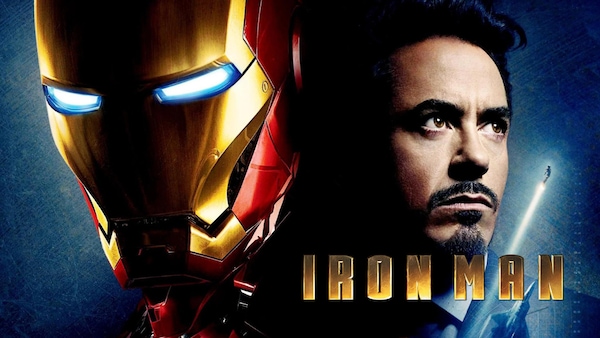15 Years Of Iron Man: How One Film Reshaped Superhero Films Forever
Jon Favreau’s Iron Man reinvigorated an ailing franchise and reinvented a struggling actor.

Last Updated: 12.31 PM, May 26, 2023
The Marvel Cinematic Universe has become the only franchise that can rival Disney’s Star Wars. It’s almost ironic that Disney now owns both IPs, and it is also concerning from an idealistic perspective that pluralistic content could become a thing of the past. But before Disney took over Marvel Studios, the company had endured years of struggle and was forced to sell their flagship IPs such Spider-Man and X-Men to 20th Century Fox, and Sony respectively. At a time when Bryan Singer’s X-Men films, Sam Raimi’s Spider-Man films, and Christopher Nolan’s Batman Begins at WB and DC were garnering commercial and critical acclaim, Marvel Studios risked being left behind.

The studio decided to take a leap of faith and announced that they would be making an Iron Man film. For the unversed, Iron Man was a character who was never celebrated among the popular superheroes. In fact, Iron Man could have been described as a B-grade superhero at best. When DC were preparing to release Nolan’s The Dark Knight in 2008, the sequel to Batman Begins, Marvel quietly released Iron Man with Robert Downey Jr in the lead. While The Dark Knight would go on to become one of the greatest films ever made, it inadvertently set the bar too high for all future DC releases. Whereas Jon Favreau’s Iron Man offered something more appealing to a wider demographic, and it was a far cry from Nolan’s gritty and grounded political thriller.

Downey Jr’s take on Tony Stark/Iron Man was a breath of fresh air. And despite concerns about the actor’s controversial past surrounding substance abuse, the actor quickly earned respect and universal acclaim for his performance. His deadpan humour and sauve charisma established him as a bonafide star. A lot of credit must also be given to Shane Black for casting Downey Jr a few years prior in Kiss Kiss Bang Bang. While it certainly wasn’t a mega-blockbuster as Iron Man, the underrated film brought the actor back from the wilderness, and he was able to showcase his acting prowess in the action-comedy. But the undeniable fact remains that it was Iron Man that propelled him to global stardom.

The film itself was the perfect blend of action, comedy, sci-fi, and drama — a combination that would become one of the defining templates of the Marvel Cinematic Universe (MCU). It kick-started a franchise that would become a commercial juggernaut. However, if one were to closely examine the MCU films that were released after 2012’s Avengers, there are distinguishable variations in terms of tone, storytelling, and aesthetics. The comedy was noticeably amplified, the plot devices became more ‘family friendly’, and the MCU films began featuring an identical visual aesthetic. In other words, they became ‘template films’ offering very little in terms of cinematic value. While there were exceptions of course, such as Captain America: The Winter Soldier, Guardians of the Galaxy, and Ant-Man, the MCU largely remained formulaic. This drew criticism from auteurs such as James Cameron, Ridley Scott, Martin and Scorsese among others, much to the ire of the partisan Marvel fandom.
The films before and after Disney’s acquisition of Marvel Studios are worlds apart. There is no debate that the films that were released under Disney’s supervision became significantly more successful, but the very essence of original filmmaking was lost in the process. The most obvious example is Thor directed by Kenneth Branagh and Thor: Ragnarok helmed by Taika Waititi. Branagh’s version featured Shakespearean themes, and the rise of a conflicted hero, and depicted Asgard with a distinctive visual aesthetic. Whereas in Waititi’s film, the character of Thor itself dumbed down, the narrative rife with slapstick comedy, and is cinematically closer to Guardians of the Galaxy than the first Thor film. While the tone is perfect for Gunn’s film about space bounty hunters and a gang of misfits, it is jarring for a film about the Norse God of Thunder.
Iron Man’s legacy should certainly be revered as genre-defining, but it has come at a cost. The film almost inadvertently killed the idea of pluralism in the superhero genre. One might argue that from a business perspective, Disney’s vision for the MCU under the leadership of Kevin Feige was simply perfect. A vision successful to the extent that rivals DC sabotaged its own cinematic universe in the hopes of mimicking Marvel. However, Marvel’s impenetrable armour appears to finally show a few weaknesses after a few recent releases failed to impress even its faithful fans. And with James Gunn joining rivals DC as the head of DC Studios, and their primary antagonist for future Marvel films Jonathan Majors involved in controversies, Marvel Studios for the first time since 2008 have a monumental challenge on their hands. Regardless, Iron Man, Jon Favreau, and Robert Downey Jr have left an indelible mark on the film industry.

